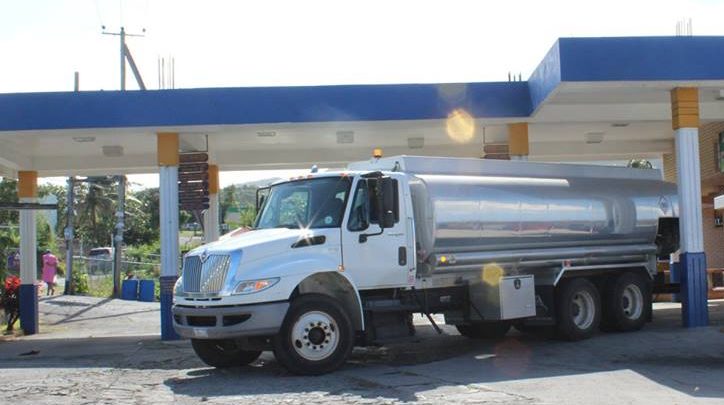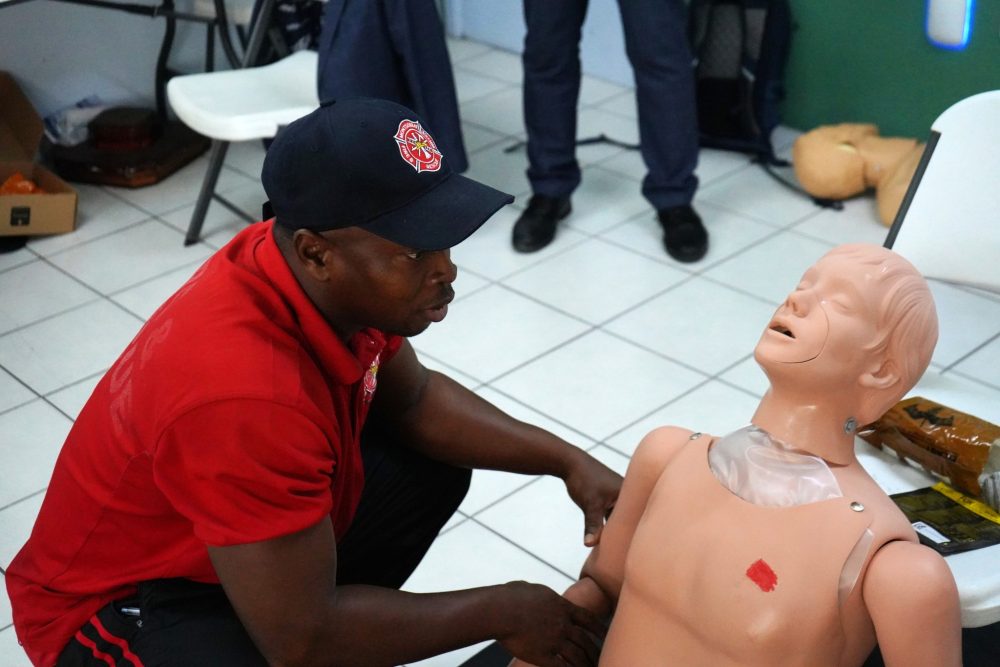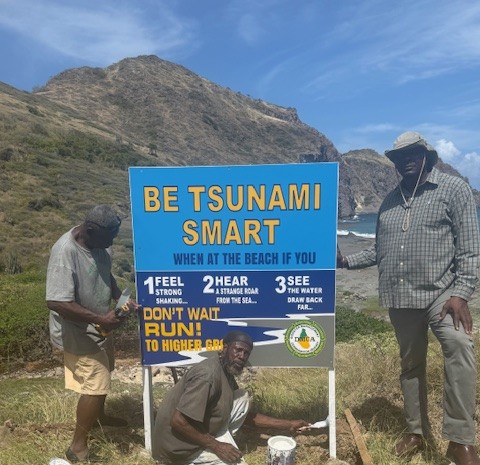
What would it take to realise the Cabinet’s recent instruction to fast-track Montserrat’s move towards 100% renewable energy by 2030?
According to the Energy Task Force Report, a change in government policies, investment in green technology infrastructure, and rapid action to execute its recommendations are required, if the island is to attain the goal before the end of the decade.
The report is a culmination of the Energy Task Force’s ten months of work evaluating and strategising on a way to curb the island’s appetite for fossil fuels. It goes into details on the positive impacts of an island fully powered by green energy but also assesses what are the current bottlenecks and barriers to achieving the target in the next eight years.
“To enable the island to make a significant push toward achieving its goal of 100% electricity generation from renewable energy sources, other actors such as the domestic and commercial sectors need to be involved. However, due to the relatively small scale of the local electricity sector, small changes in the sector can have significant impact on the local utility and, by extension, the lower end ratepayers,” the report explains.
MUL
Montserrat Utilities Limited (MUL), the island’s sole power supplier, has been fraught with challenges. Despite a more than EC$36 million investment in a new power generation plant, the island has suffered frequent outages due to synchronization issues between the generators.
According to the report, MUL consumes 45% of the total fuel imported to Montserrat. Diesel accounts for 67% of fuel imports into Montserrat. Gasoline accounted for 28%, while LPG accounted for the remaining 5% consumed.
“In 2020, fossil importation into Montserrat accounted for just over 99.4% of the island’s energy consumption and 96.7% of the island’s electricity generation. It is projected that RE will account for 13% of the electricity generation by the end of 2021. In 2020, total fuel importation into the island stood at 48,3911 Barrels of Oil Equivalent (BOE) or 280, 601 MMBtu,” the report states.

It notes further that, “In 2020, a total of 463 MWh of electricity was generated by a 288.4 kWp solar PV system installed at MUL’s Brades generating plant. This generation level results in an average daily generation per kilowatt peak of 4.4 kWh/kWp/Day. Renewable energy
accounted for 0.6% of the island’s overall energy consumption and 3.2% of the energy electricity generation.”
A major infrastructural challenge for renewable energy development locally is “the lack of physical facilities for transmission and distribution (T&D) networks, as well as equipment and services necessary for power companies,” the report notes. Additionally, new infrastructure will be needed to allow renewable energy technologies expansion to connectivity to the grid.
The task force said in its report that the “reliability of the electricity service adversely affects customer confidence and is a deterrent to direct foreign investors. The addition of intermittent renewable energy generation plants would only serve to exacerbate this issue. Hence, to meet the desired level of renewable energy growth, significant upgrade and expansion of the current T&D infrastructure would be required.
“The development of a smart grid would allow greater efficiency and higher demand response levels and provide greater control to customers over their electricity bills,” the report added.
Even when the infrastructure has been developed, local capacity to troubleshoot and maintain will be critical.
The task force highlighted the ongoing challenge of a lack of trained personnel to train, demonstrate, maintain, and operate renewable energy structures.
“MUL’s generators are normally overhauled with technical assistance from RIMCO Barbados due to the island’s lack of expertise. Montserrat needs capacity development to ensure that the new REs can be maintained by local resources to alleviate high operational expenses,” the report noted.

Delta Petroleum
Delta Petroleum (DP) has been Montserrat’s only fuel supplier for more than 20 years after other companies left the island due to the volcanic eruptions, which began in 1995.
A shift towards renewables would mean a shift in the current arrangement with the fuel supplier. However, the risks of maintaining the status quo would have adverse effects on the island, not just one company, the task force report notes. Continued reliance on fossil fuels means being unable to control the costs to consumers of the constantly fluctuating price of fuel.
GOM Policies
The Energy Task Force report notes that for the renewable energy target to be achieved, the Government of Montserrat must transform current practices, introduce legislation and regulatory bodies to support a 100% shift from fossil fuels.
Director of Energy for the Government, Kenrick Burke shared that “most of the other smaller Caribbean islands have heavily invested in upgrading their tourism product. However, Montserrat has the unique opportunity to develop a niche energy-driven economy that will
attract a more sustainable direct foreign investment clientele.”
Burke, who also chairs the energy task force, said that to meet the target, all hands must be on deck. “Technological advancement and related cost reductions, public policies that provide financial support for renewable energy, and limitations on greenhouse gas emissions and other public policies that serve to include now externalized costs in energy prices are needed and appropriate to bring renewable energy prices down to more competitive levels.”
The report noted the absence of government incentives and a regulatory framework, such as reducing importation taxes on RE technology and feed-in tariff that encourages and supports renewable energy development on the island. This, it says, limits the RE sector’s growth.
“The implementation of these incentives and regulations will allow individuals and commercial entities to implement distributed generation. The Task Force recognizes the impact this would have on the local utility; hence the Task Force recommends that MUL be allowed to operate in the new landscape offering distributed energy systems to prospective customers,” states the report.
Government of Montserrat currently does not have a policy or a framework agreement for the deployment of public private partnerships (PPP) on any of its energy projects. This, the report noted, “needs to be addressed in good time to accommodate potential private investors entering our energy market.”
The task force has recommended that Public-Private Partnership (PPP) may be the way to provide capital funds for Montserrat’s renewable energy development. Introducing any private entity into Montserrat’s energy generating arena will require two key regulations, the report states. An energy regulator that is autonomous of Government and energy providers and the development of a PPP framework to enable collaboration of government resources with private funding.
“The non-existence of these two has been identified as high-level barriers to moving Montserrat’s Energy Policy forward in a timely manner,” states the report.
The complete Energy Task Force Report can be reviewed at Energy-Task-Force-Final-Report.pdf (www.gov.ms)
Discover more from Discover Montserrat
Subscribe to get the latest posts sent to your email.



